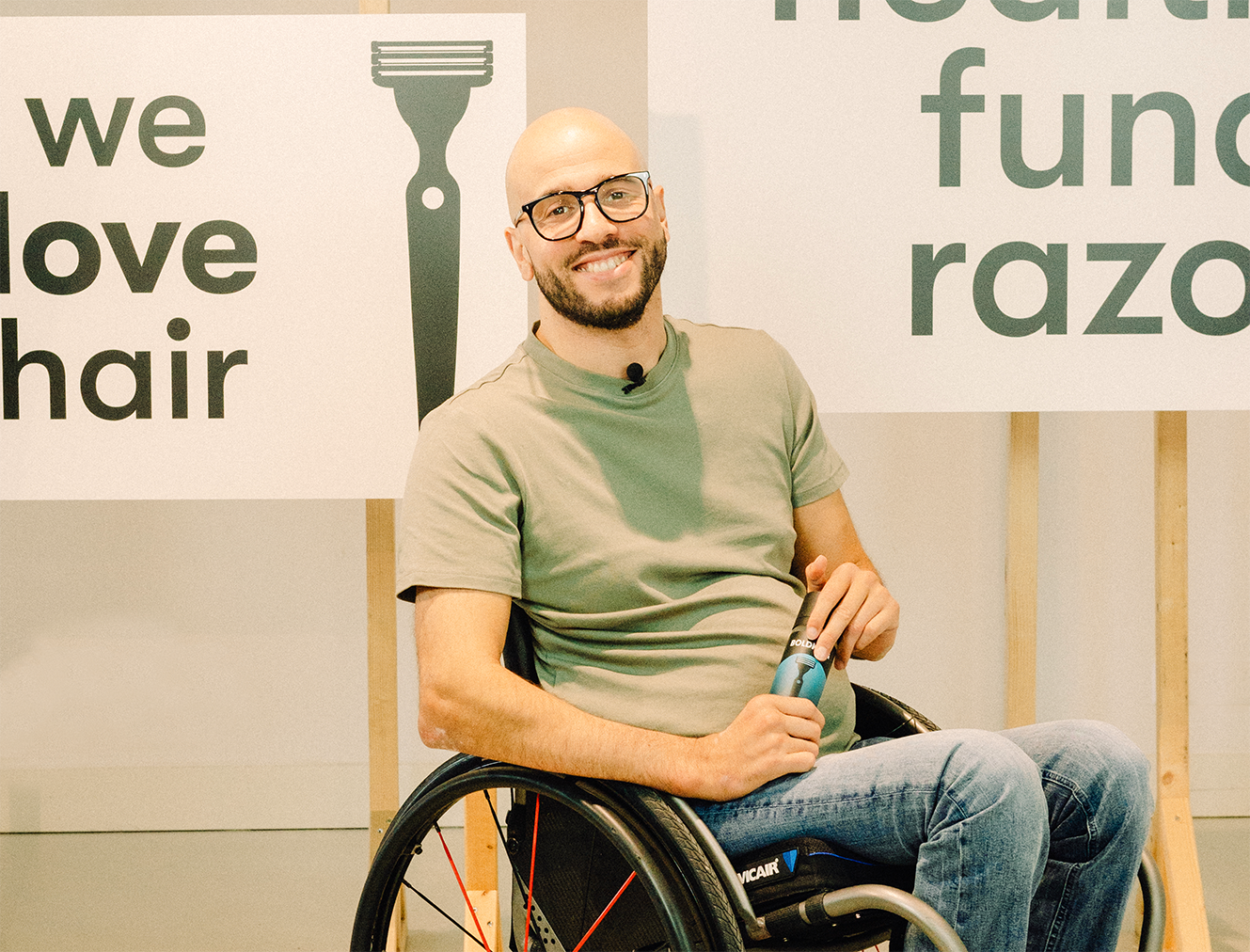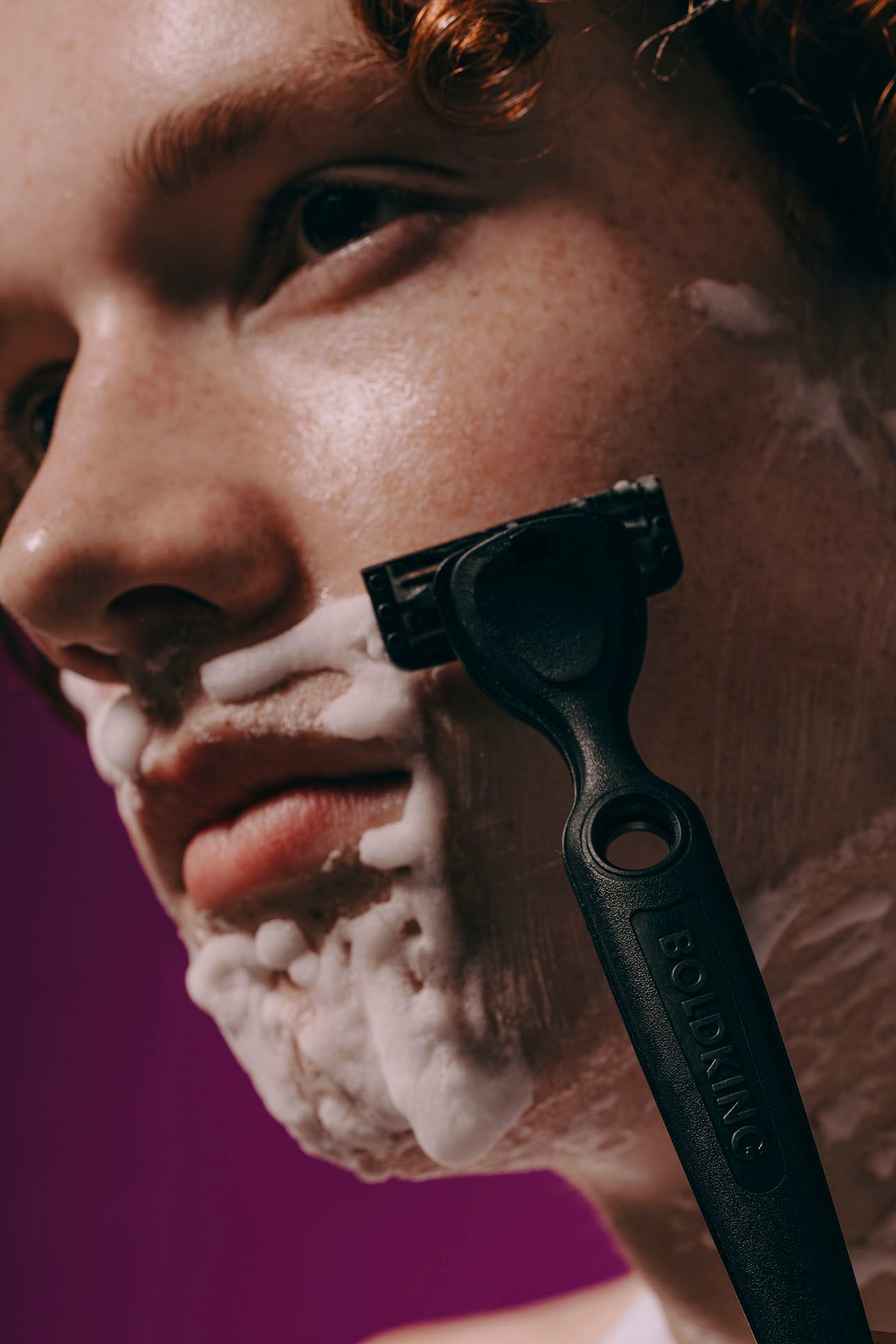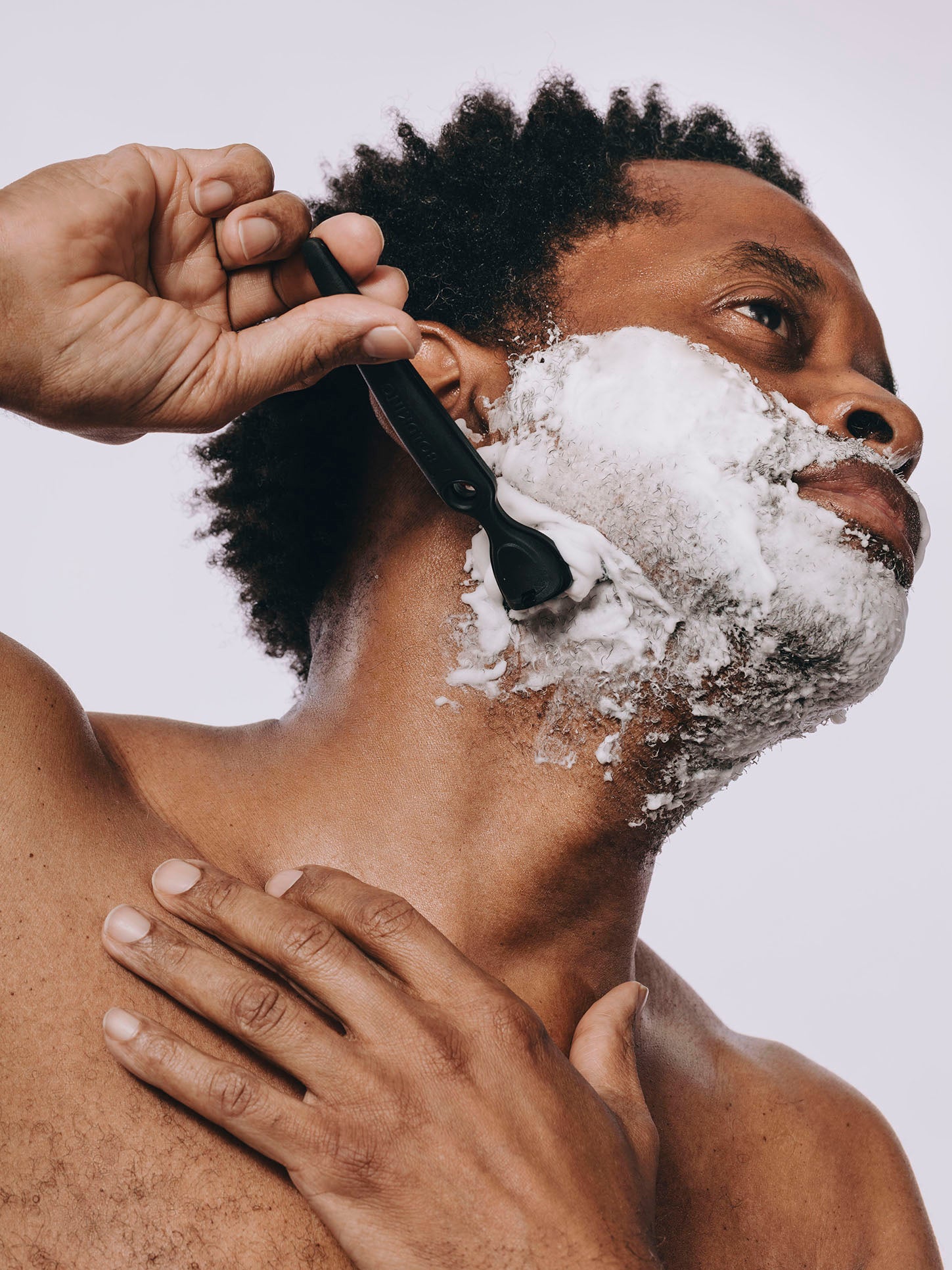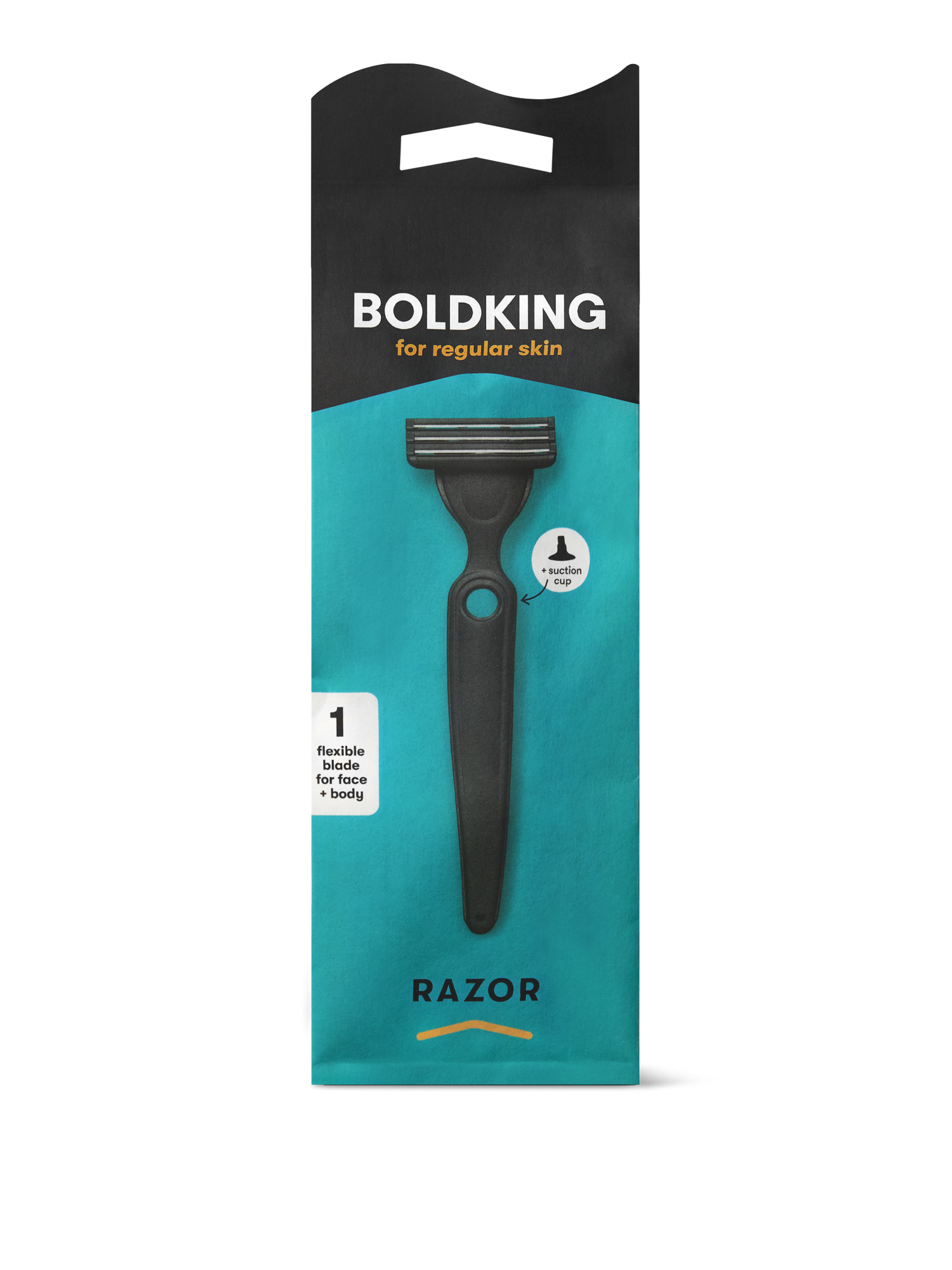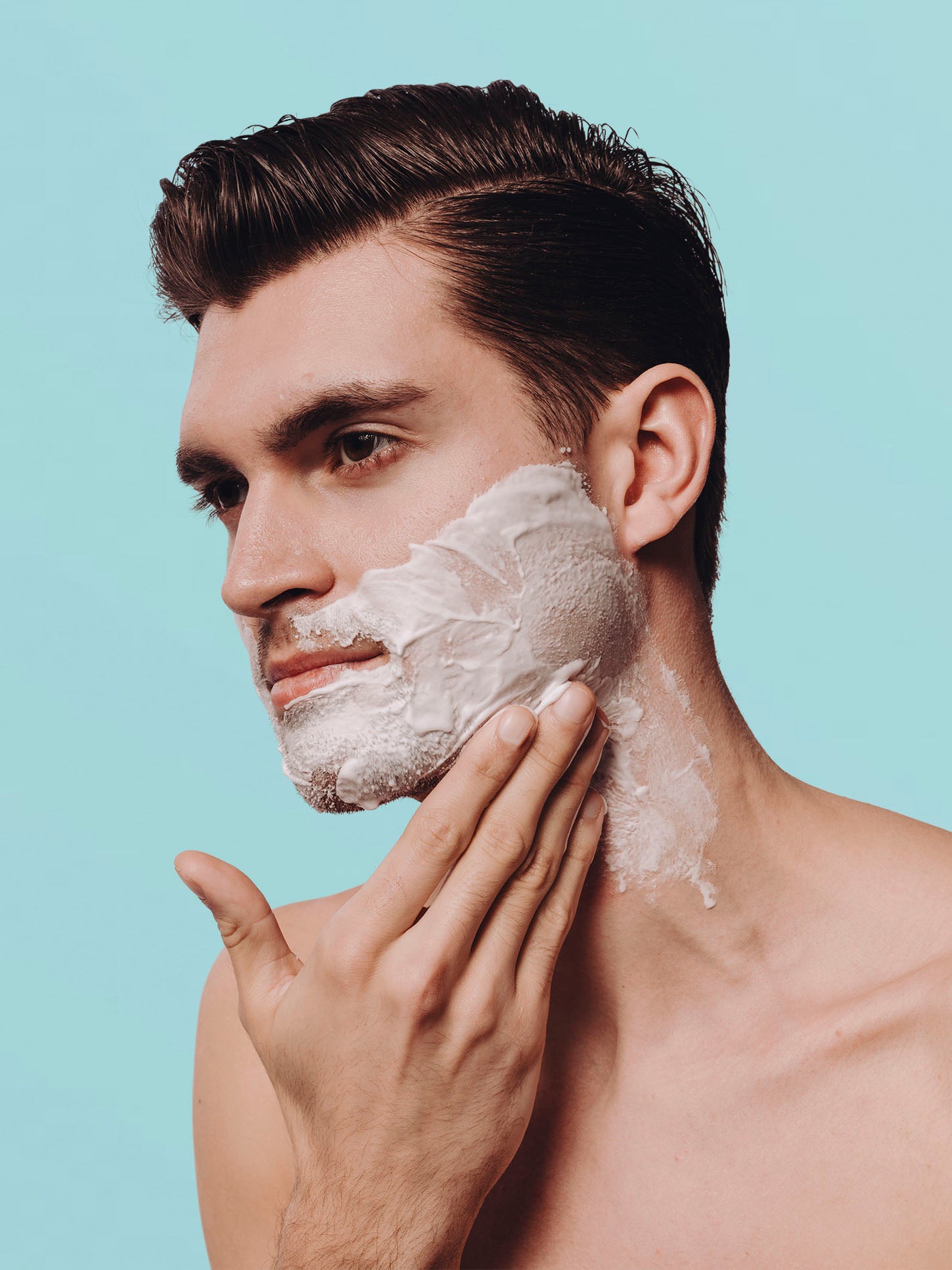Reda Haouam is all about living life to the fullest while chasing his passion for wheelchair rugby. For our FundRazor, he sat down with Dennis Warmerdam to share his journey. In this interview, Reda opens up about his active lifestyle, the impact of his serious accident, and how he found strength and resilience on his road to recovery from cancer.
In this interview, we’ve gathered the most inspiring moments from the roundtable discussion. Don't forget to turn on subtitles.
Rather read than watch? Below, the highlights of the interview written out.
Reda, we know you as a dedicated wheelchair rugby player, but we’re curious about the man behind the sport. Could you give us a brief introduction?
I’d describe myself as a true life enthusiast, someone who always wants to make the most of every moment. Rugby is my big passion, but I also love to immerse myself in all sorts of other enjoyable things, whether it’s travelling, spending quality time with friends and family, or indulging in great food.
Your life changed drastically due to an accident when you were young. Can you tell us more about that period?
When I was seventeen, I dove into shallow water while on holiday. Typical young boy behaviour: I jumped off a pier and landed with my head on a sandbank, which resulted in a broken neck and a spinal cord injury.
This led me into a long rehabilitation process where I had to completely rebuild my life and rediscover my body. It took quite a long time; I think I was at it for about two years.
I spent a year in a rehabilitation centre, which was my first real encounter with high-level sports. It was intense hard work and training every single day, focusing not just on the physical aspects but also the mental side.
Was it immediately clear which functions you would lose? And which would return? Or was there a big gray area?
There was quite a bit of clarity. A certain prognosis is outlined for you, giving you an idea of where you’re heading. Then, you start working on it, but it’s also about looking a bit further into the future. Having been an athlete my whole life helped a lot. During my rehabilitation, I came into contact with other athletes who had experienced similar situations. They were physically well-developed, and I thought to myself, "I want that too!"
It was then a matter of flipping the switch and working hard. I knew from the beginning that once I committed to this and worked hard at it, I might fail three times, but on the fourth try, I would get something right and achieve something.
Did those guys in rugby set the bar for you, in the sense of “I can aim for that, and I can still achieve this”?
Absolutely. I've been an athlete my entire life, and I've developed a certain level of fanaticism. It wasn't just about reaching that bar for me; it was also about surpassing it. I genuinely wanted to become better than those guys.
Has wheelchair rugby ultimately helped you discover what else is still possible?
In my search for my sport, I encountered all the things I could no longer do, which was quite tough. However, through rugby, I discovered what I still could do, and that had a ripple effect on other areas of my life. If I can achieve this, why can't I just pick up my studies again? Why can't I work full-time? Why can't I just…? I started taking action. Sure, you face obstacles along the way, but you can overcome them.
A great example of this was when I fell in the rehabilitation centre. It attracted a lot of attention; everyone came to see if I was okay. We trained in the same centre, and it's common for people to fall during training, but you just get back up. I realized I wasn't so fragile any more.
You say you're not so fragile any more, but four years ago, you received a cancer diagnosis. Didn't that make you feel a bit vulnerable again? How did you cope during that period?
That was indeed a massive shock. I fell ill during a tournament in Prague, thinking I might just have a bladder infection. When I returned, I decided to get it checked out immediately. Suddenly, I found myself in a surreal whirlwind, thinking, “Is this for real?” I had been an athlete for several years, living healthily, training hard, making the right choices, and taking care of myself. Then this happened. So yes, you definitely feel vulnerable, as I felt a bit betrayed by my own body.
Like, why is this happening to me? I had just managed to get everything back on track.
You’re certainly fit; did that ultimately make a difference during this period?
Before starting chemotherapy, it was crucial for me to stay fit, as it significantly impacts your body. Luckily, I didn’t feel too sick, which gave me the motivation to stay active every day. My oncologist advised me not to overdo it, which was helpful.
I was in the hospital every day, hitting the gym with an IV in my arm, lifting weights. For me, this was also a form of therapy for my mind. I was engaged and didn’t feel powerless. It was a combination of eating well, resting, and staying active—basically, just like my normal routine, but with a different goal. This approach helped me regain my confidence.
Ultimately, it all turned out well. You underwent chemotherapy and eventually had surgery.
Yes, that's correct. They were able to remove everything. Since then, I’ve been on a monitoring schedule. There was even a time I forgot my appointment, which I thought was bad, but my doctor said it’s a good sign: it means I’m getting back to focusing on my own life.
In the end, things worked out. You had chemo at the Antoni van Leeuwenhoek and you ended up having surgery.
Yes, that's right. They were actually able to remove everything. Since then, it's still been controls, for me, a control route. I also forgot my appointment once, which is very bad, because I was no longer so concerned about it. My doctor said it's actually a good sign: it means you're dealing with your own life again.
What have you learned from the challenges you’ve faced, and how has that influenced your view on rugby?
I truly enjoy the overtime in a match; there’s nothing better for me. That stress has suddenly become something I relish. It’s all about having gone through those tough times. I believe I've only become a better rugby player because I no longer let myself get stressed. Every match is a gift, a celebration. And when overtime comes, I get to play even more and receive an extra gift.
I can imagine that the journey you’ve been on has changed your perspective on health. What does ‘health’ mean to you now?
Health means feeling good about yourself. It’s about being comfortable in my own body and mind, as health is a relative concept. It’s about living life in a way that brings me satisfaction, even when my body doesn’t function perfectly. It doesn’t mean the end. You can be sick or have a physical limitation or go through a tough mental phase, but that doesn’t define who you are.
You’re not just a cancer patient; you have cancer. That’s the realization I’ve come to over the past 20-plus years. It shows that this isn’t just who I am; it contributes to the person I’ve become. It’s part of my life, but it doesn’t define me.
What would you say to men who are going through a similar illness, based on your own experience?
Never sell yourself short by thinking you can't do anything any more. There's always a small aspect where you have control and can make an impact.
It's essential to focus on that. When things become overwhelming, break it down into smaller parts and look at what you can influence. That’s enough. If you're going through an illness, rely on your caregivers and specialists. Utilize the people around you, whether they're professionals or your support network.
Hold on to that small piece that is yours, and concentrate on it. I believe that you can always exert some influence, and it’s almost never the end.
———————
Reda Haouam's story shows that life goes on, even when faced with significant setbacks. This life enthusiast reminds us that there are always opportunities, even after major challenges. Enjoy what truly matters in life. Thanks to Reda for his inspiring story and his positive outlook on the world!
